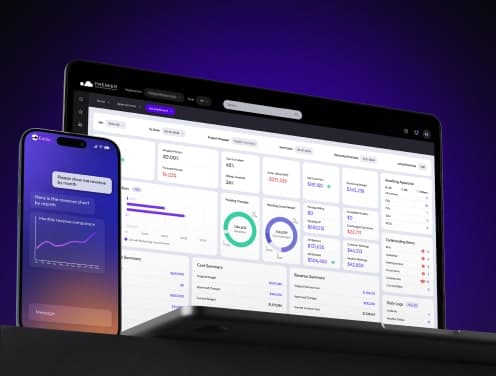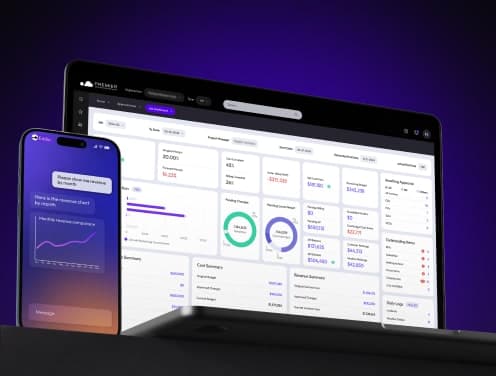
Essential Subcontractor Documents You Must Collect
Before you begin working with a new subcontractor, there are several compliance papers you need to collect from them. These subcontractor documents, like proof of insurance and copies of licenses, help reduce risk on construction projects. The documents are often required by the contract with the owner, or the general contractors may be requesting them as per their subcontractor agreement. The goal of collecting them is to ensure that the work will be completed in the manner specified in the contract and to protect the general contractor and owner from potential costs or damages caused by the subcontractor. General contractors want to ensure that employees will be around to finish the project and provide quality work, with the necessary insurance and bonds to cover any damages that might happen during the project. We’re going to guide you through what subcontractor documents are and let you know which ones you need to collect and track!
What are compliance documents, and which ones are essential?
Before we get into what subcontractor documents you need to collect, let’s take a moment to understand why these compliance documents are important. They are requested to confirm if a person meets the minimum requirements to work with your company. They help ensure that a subcontractor meets the legal requirements for being in business, as well as any additional conditions.
Every company requires different documents from their subcontractors. Usually, these are contract-driven, so be sure to review the specific points. Some project-specific documents may also be gathered, as specified in the contract with the project owner. We’re going to start with the essential documents that you should collect from all your subcontractors, and then list some that are optional but may be required.
Contractor’s license
There’s nothing more important than verifying that your subcontractor is licensed to work in the state and city where the project is located. Not all states require licensing for subcontractors, so be sure to check the regulations first.
It guarantees that the subcontractor has insurance coverage, usually a small bond to cover disputes and claims, and that they are registered to work in that state. For trade contractors, licensing also assures a level of knowledge and education. Once you’ve checked it, make sure the license stays in good standing by regularly reviewing it to ensure that the insurance policies and bonds remain current.
Insurance certificates or proof of insurance
There are two types of business insurance that all subcontractors should have: general liability and workers’ compensation. These policies protect the business in case of theft, damage, or injury. You may also request proof of automobile insurance if the subcontractor has their own vehicles.
Take a look to see if the policy has not expired and that it has the appropriate claim limits as per the subcontractor contract. Your company may also be added as an additional insured to the sub’s policy, so make sure that is noted as well.

W9 form
All subcontractors should be providing you with an IRS W9 form. This documentation lets you know the type of company the subcontractor is (corporation, LLC, sole proprietor, etc), as well as their tax identification number or Social Security number if they are an individual. You’ll need this information for the end-of-the-year reporting and sending 1099 forms to those subcontractors and suppliers.
Project bonds
Some projects, mostly government and public ones, may require performance and payment bonds. Not all general contractors ask their subcontractors to bond back the project, but if you do, you’ll want to get a copy of these bonds for your files. You’ll need proof that the bonds were issued, as well as the specific bond information, in case you or the project owner have to make a claim.
Optional subcontractor compliance documents
Your company may choose whether to collect and review additional documents or maintain only the essentials. If you do require them, you should include them in your subcontractor agreement form.
SDS / MSDS
Some general contractors require that all subcontractors turn in their SDS (safety data sheets) or MSDS (material safety data sheets) as part of their compliance package. The last one is required to be on each job site when a contractor uses chemicals or hazardous substances.
These are often job-specific, as each project requires different products. Subscriptions to MSDS services that provide a website or telephone number can substitute for providing paper documents.
Safety policies
Every subcontractor should have a safety manual or set of safety policies that they institute on their projects. Some general contractors require subcontractors to send those policies in, so they can be reviewed to verify that they comply with the general requirements.
Some of the key policies that need to be reviewed for the subcontractor statement include fall protection, personal protective equipment (PPE), silica protection, and health policies. All subcontractors need to comply with these requirements when it comes to health checks, PPE availability, and record-keeping.
Keeping it all organized with our help!
Contractors must track the receipt and expiration of these subcontractor documents to ensure that the contract complies at all times. General contractors should develop a system for verifying, recording, and following up on missing or expired information.
Construction accounting management software, like ours, can help by tracking insurance and license expiration dates, and providing automatic notification when they are expired. This makes compliance tracking easier by centralizing the data, providing notifications, and allowing contractors to be proactive in tracking down information.
This helps general contractors ensure that their compliance information is up-to-date, reducing project risk. If you also need subcontractor contract templates, our software for construction management can provide them in seconds.. Contact us and get started with Premier Today!





















